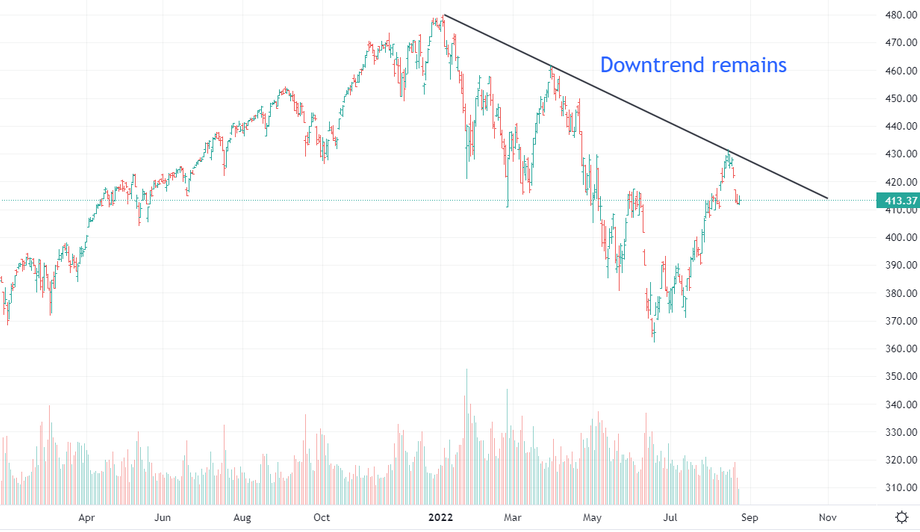Hello Everyone, its Wednesday again! I want to be clear with you on something here. Although my indicators are telling me the bottom in stocks could be behind us already, the actual trend change has still not happened. The S&P 500 remains in a downtrend at this time. It has some hurdles to clear yet and that could happen soon, but it has not quite happened yet. I will be the first to let you know when that changes.
So today I’d like to talk about rollovers. A rollover is when you can move your money out of your retirement plan at work, usually a 401k or something similar, over to your own personal IRA, and you can do it without triggering any tax consequences. Employees become eligible for this when there is a triggering event, like when you go to work at another company, or if you retire. Those are the common reasons that may trigger a potential rollover. From there you can typically leave it where it is, roll it to your new company plan, or you can roll it to an IRA ( Individual Retirement Account). If you roll it to the new company plan, find out from your new employer how to go about this. There may be paperwork to help with this. If you want to roll it to your own IRA, then you can do this yourself, or you can seek help from a financial advisor. An experienced advisor has probably done this many times and they know how to get it done correctly. What we do not advise is the lump sum distribution, because that can make the whole thing taxable. Be careful of that.
When rolling over to an IRA, there are some new best practices encouraged by the regulators. That is, the advisor and the investor perform some due diligence to provide justification for the rollover. In other words, does it make sense for the investor to roll it, vs the other options? Here at our firm we have started using a Rollover Comparison Worksheet. It takes into consideration things like fees and pricing, available investment options, and even the availability of advice. Rolling over may not always be the least expensive, but typically investors that roll over with an advisor are more interested in additional investment options, planning, ongoing advice, and even custom investment management. That’s where we can help.
If you have questions or need some help making this evaluation, please feel free to contact us.
Best Regards,
Mike
